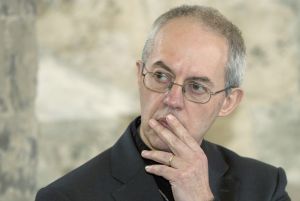Holy hypocrites: Why the Church shouldn't shut up about the Living Wage, whatever The Sun says

One of the great strengths of the Church is that it does things. It isn't just a think-tank or a school for preachers. Its parish churches and cathedrals are at the heart of a wide range of forms of voluntary action - from parent and toddler groups to night shelters, Foodbanks and Credit Unions. Taken together, the Church in England reaches about 10 million people each year through community activities.
Inevitably, an organisation that doesso much employs a lot of people and invests a lot of money. All of which means that when we saythings, people can tell if we are practising what we preach. Sometimes, alas, we don't. Sometimes (as The Sun so gleefully observes today) the Church looks hypocritical. Today it reports that, as the Bishops speak up for the Living Wage, some of their own parish churches and cathedrals are paying workers less.
So how should the Church react to these charges of hypocrisy? I don't think we can do better than the response given by the Bishop of Chelmsford. When told that the Church was full of hypocrites, Stephen Cottrell replied, "Not full – there's still room for one more." Of course the Church doesn't always live up to the standards of the Gospel.
Of course we then look silly when the tabloids discover a discrepancy between words and deeds. So of course Archbishop Justin Welby is "embarrassed" today, just as he was when it turned out the Church had a small investment in Wonga. Should the Church keep quiet until every one of its congregations and cathedrals is beyond reproach on every issue?
The comparison with the Wonga row is instructive. Eighteen months on, it is Welby, not his armchair critics, who has made change happen. Wonga's business model is in crisis (with three chief execs in 18 months), Credit Union membership is rising and Britain has its first cap on interest rates for over a century. Not bad work for a bunch of hypocrites.
The same might be said of the Living Wage Campaign. Like the "war on Wonga," it started in inner-city churches. For over a decade, these congregations have been working with mosques and synagogues, schools and unions as part of Citizens UK. Slowly and patiently, they have turned the Living Wage from a pipe-dream to a reality in hundreds of thousands of low-income households. As the campaign has gained support across the wider Church, there has been a growing realisation that each of ourinstitutions needs to practise what it preaches. More and more churches and cathedrals are doing just that, but there are still enough who haven't got there yet to give The Sun some entertainment.
I'm glad the Church is speaking out on these issues. If it wasn't for the lead of our Bishops – and the powerful grassroots work of churches in Citizens UK – many more people would earning poverty wages and living at the mercy of Britain's loan sharks. And if it wasn't for the church's Foodbanks and night shelters, many more people would be hungry, hard up and desperate.
Of course, there are things for the Church to learn from each of these embarrassments. We need to get our own house in order – and on both issues, the Bishops are taking a lead internally as well as in the public square.
But it would be a disaster if the Church stopped speaking out, silenced by fear of the next negative headline. We are attracting an increasing amount of flak precisely because our message is uncomfortable. And when the powers that be – the vested interests in the worlds of media, politics and business – are feeling uncomfortable, that's a sign the Church is getting something right.
Canon Dr Angus Ritchie is executive director of the Centre for Theology and Community.











